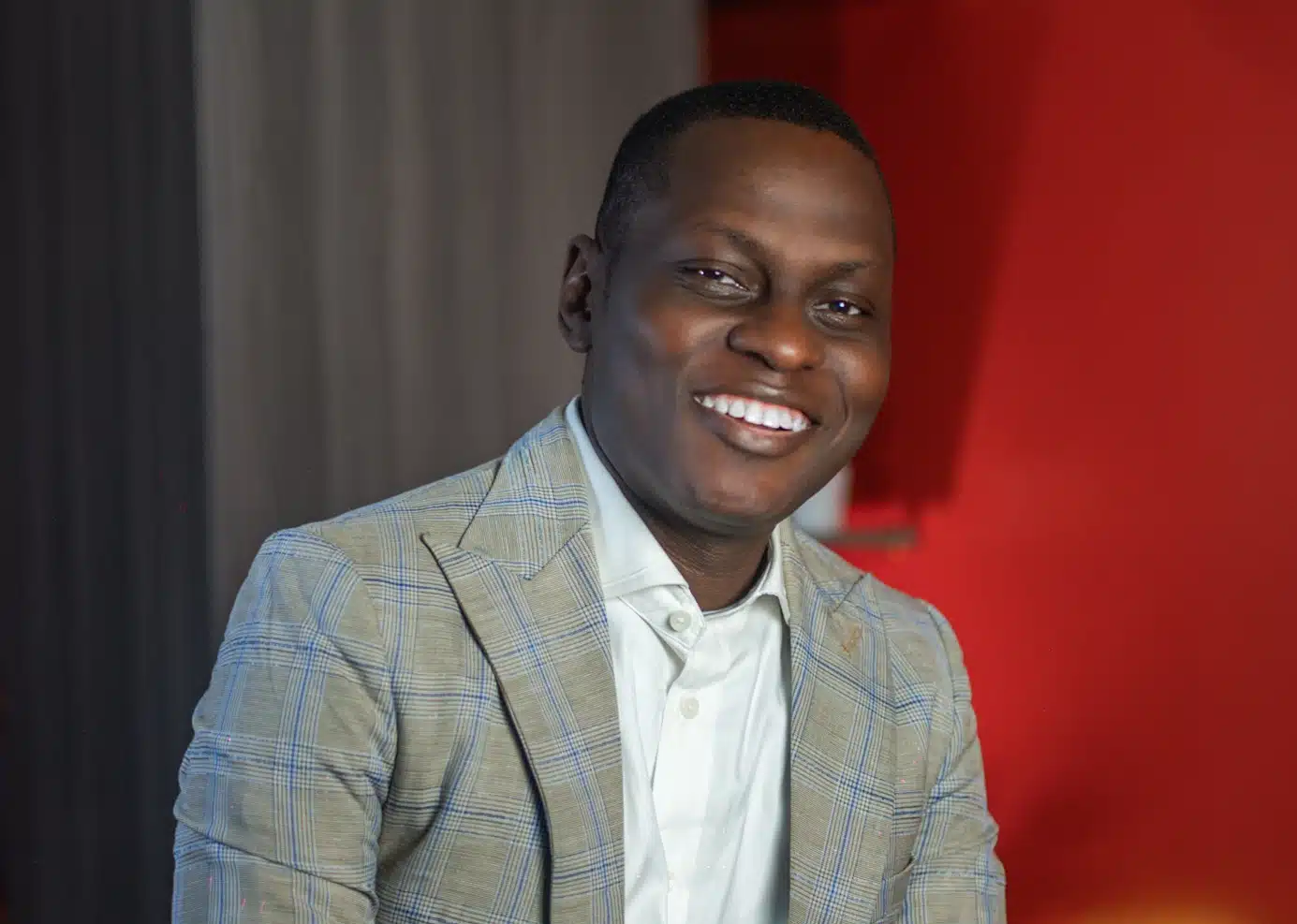Hyvää päivää,
Victoria from Techpoint here,
Here’s what I’ve got for you today:
- Sabi lays off 20% of its headcount, goes all in on minerals
- No more surprise USSD bills from banks
- US now screens your tweets for student visa
Sabi lays off 20% of its headcount, goes all in on minerals

Sabi is switching lanes and switching hard. The Nigerian B2B eCommerce startup just laid off around 20% of its staff as it pivots to focus fully on TRACE, its traceability platform helping global buyers track the origin of African commodities like lithium, copper, and cocoa, per Condia. It’s a big bet on the future of clean, ethical sourcing, and a sign of where the money (and scrutiny) is going in Africa’s export market.
The layoffs affected about 50 people across different departments. While it’s never an easy call, the company says it’s doubling down on what’s working. “We’re going all in on the part of our business seeing the most demand,” Sabi shared. That part? TRACE, a blockchain-powered platform that provides end-to-end visibility for minerals and crops sourced from across Africa.
TRACE is already handling exports from Nigeria, Tanzania, Zambia, and Zimbabwe, with over 50,000 tonnes of commodities tracked since launch. And the timing couldn’t be better. With Europe, the US, and other regions tightening their ESG and traceability rules, buyers now demand digital “passports” to prove where their raw materials come from. No one wants to get caught buying so-called “blood minerals.”
The platform includes a tool called Flare, which stores data like lab results, environmental impact, and site audits on-chain, giving buyers confidence and suppliers access to better markets. It’s already being used in new lithium processing sites in Nigeria and backed by a growing partnership with blockchain firm Minespider.
Sabi started in 2021 by Ademola Adesina and Anu Adedoyin Adasolum with a much broader vision: helping informal merchants sell and move goods across Africa. By 2023, they were handling over $1 billion in transaction volume and serving over 300,000 merchants. But demand for traceability tools exploded in 2023–2024, especially after headlines like Apple cutting off DRC suppliers over human rights concerns.
So while it’s a tough transition, Sabi says the goal hasn’t changed: to power trust in African trade. “Our mission is still about supporting merchants and building responsible supply chains,” said co-founder and CEO Anu Adasolum. Per the co-founder, TRACE just happens to be how they do that right now, and well, it works
No more surprise USSD bills from banks

When I see the National Association of Telecom Subscribers of Nigeria (NATCOMS) in the news, I always wonder, who exactly are these folks to represent the 169.3 million telecom subscriptions in Nigeria? 😂 Like, it’s cool that someone’s supposed to speak for us telecom users, but how well are they doing that? Well, with this latest Unstructured Supplementary Service Data (USSD) news, maybe they’ve earned a point. Let me gist you.
Telcos and banks have finally stopped their long-running USSD drama. As of two days ago, June 18, 2025, the Association of Licensed Telecom Operators of Nigeria (ALTON) announced that the End-User Billing (EUB) model for USSD has officially kicked off. That means, going forward, you’ll be charged ₦6.98 per 120 seconds directly from your airtime, not your bank acc0unt.
NATCOMS, speaking for the subscribers, welcomed the new billing system but demanded “transparency and acc0untability” from banks and telcos alike. He said the EUB system could finally end the confusion of who owes what, especially since the last model led to constant fights and a mountain of debt. But he also wants the proceeds to be used to improve Nigeria’s network quality. (Please, we beg, no more “network busy” errors in 2025.)
Meanwhile, MTN Nigeria has added a sweetener. Speaking to media execs, MTN’s Chief Enterprise Business Officer, Lynda Saint Nwafor, clarified that purchasing airtime and data via USSD will be fr.ee. That means while you’ll pay ₦6.98 for things like balance checks or fund transfers, topping up airtime or data comes at zero cost. According to her, MTN has zero-rated access to bu.y airtime through bank acc0unts. Wait, did I hear you say, “Thank you, aunty Lynda?” 😂
Anyhoo, the telcos are promising this new system will be more customer-friendly. Under it, you’ll get a prompt to opt in and approve any charge before they deduct from your airtime, and you’ll only be billed for successful sessions. Plus, banks that haven’t met the terms of this new deal won’t be allowed to switch their users just yet.
So, if your airtime balance has been mysteriously shrinking after banking transactions or you’ve been getting confusing texts from your bank, here’s your answer: telcos are now billing you directly for USSD services. And if anything goes wrong, NATCOMS says to hold your bank or telco accountable. It’s your money, after all.
Whether this change improves things or just shifts the stress remains to be seen, but for now, NATCOMS might just be doing their job. Or what do you think?
The US now screens your tweets for student visa

If you’ve been hoping to study in the United States, here’s a heads-up: Uncle Sam — a nickname and personification of the United States government — wants to see your tweets. And not just your tweets, your full social media life.
On June 17, the US government officially resumed student visa processing after a brief suspension in May 2025, but there’s a new rule in town: your online presence is now fair game. If you’re applying for an F, M, or J visa (that’s academic, vocational, or exchange programmes), be ready to hand over your socials.
This move, which the US says is all about “national security,” means students now have to prove not only their academic plans but also that their digital footprint isn’t a threat. Basically, your Instagram memes, TikTok rants, and Facebook comments may now be part of your visa vetting process. If that feels a little Orwellian, you’re not alone, especially for African students, many of whom already face long processing delays and stricter scrutiny.
Nigeria, for instance, is the largest African source of international students in the US, with nearly 20,000 students enrolled. This update could mean a longer, more uncertain wait for visa approvals, especially as the US continues to tighten its stance under Donald Trump’s second-term policies. The administration has made it clear: visas are privileges, not rights, and online behaviour will influence whether you get that F1 stamp or not.
Let’s not forget, this isn’t just about screening for national security. The move comes at a time when Trump is openly cracking down on elite US universities, accusing them of harbouring pro-Palestinian sympathies after student protests against the Gaza war. Foreign students caught protesting have already been deported or had their visas revoked, so this new vetting may be another layer in that wider crackdown.
While the US State Department urges applicants to check their local embassies for new interview dates, African students (especially from politically sensitive countries like Nigeria, Egypt, and Sudan) are left wondering if studying in the US is worth the added baggage. The message from Washington is clear: come to school, but keep your opinions offline — or else.
What this means for African families already stretching financially to send their kids abroad is more pressure, more uncertainty, and potentially, more rejections. And with China already protesting the move, it raises a big question: will other countries follow suit, or will the US slowly lose its spot as the dream destination for international students?
In case you missed it
- Hello Tractor is the Uber for Africa’s smallholder farmers
What I’m watching and reading
- 8 Signs On Breast You Should NOT Ignore
- This Is How You Are Destroying Your Skin!
Opportunities
- Want to exhibit or attend the Lagos Startup Expo today, Thursday, June 19, 2025? Visit this website here.
- Building a startup can feel isolating, but with Equity Merchants CommunityConnect, you can network with fellow founders, experts, and investors, gaining valuable insights and exclusive resources to help you grow your business. Click here to join.
- Help us make Techpoint better for you! Your feedback shapes what comes next (your responses may potentially save my job. A bit dramatic, but still). It will only take 30 seconds to tell us what works and what doesn’t. Fill it here.
- To pitch your startup or product to a live audience, check out this link.
- Have any fresh products you’d like us to start selling? Check out this link here.
- Follow Techpoint Africa’s WhatsApp channel to stay on top of the latest trends and news in the African tech space here.
Have a fun weekend!
Victoria Fakiya for Techpoint Africa.










